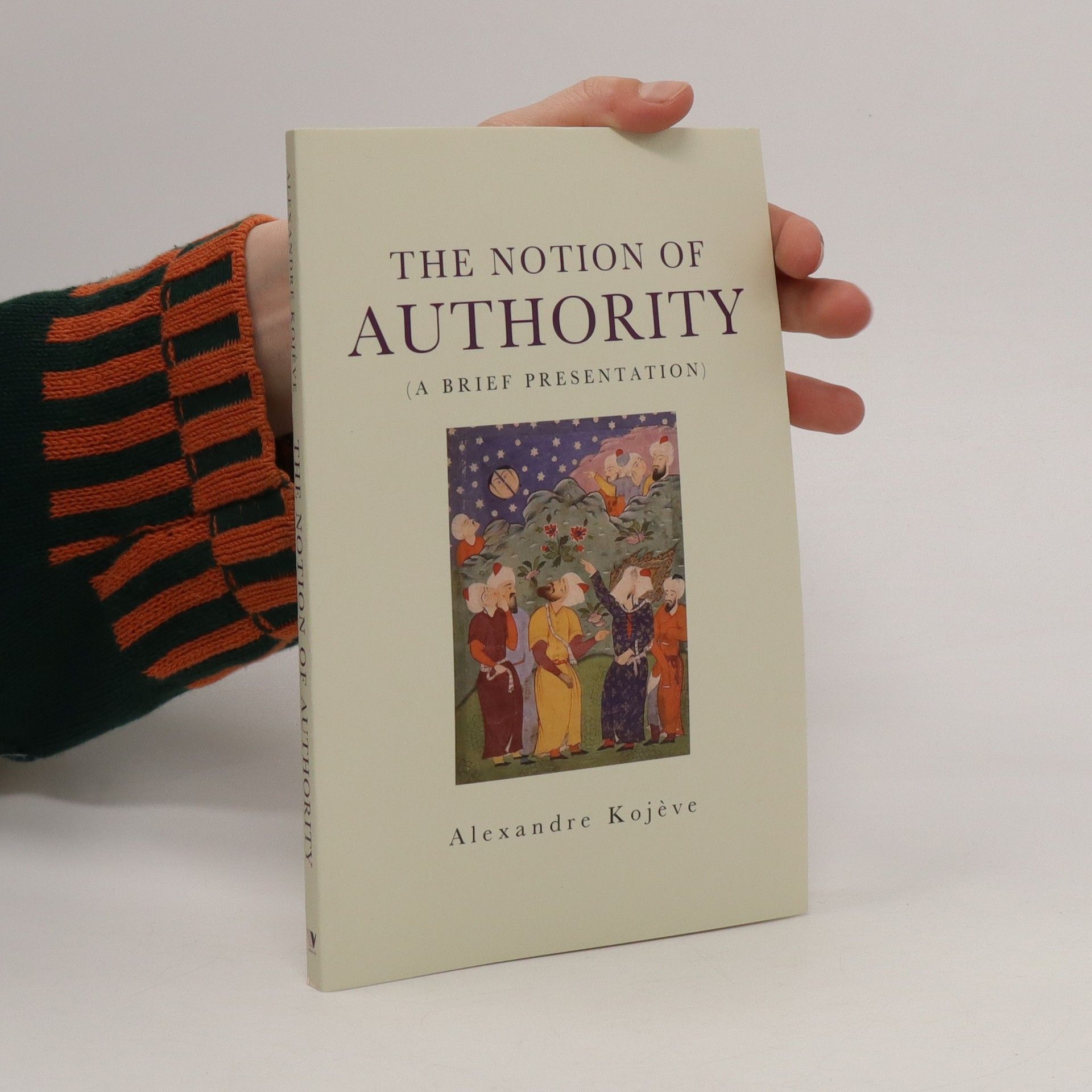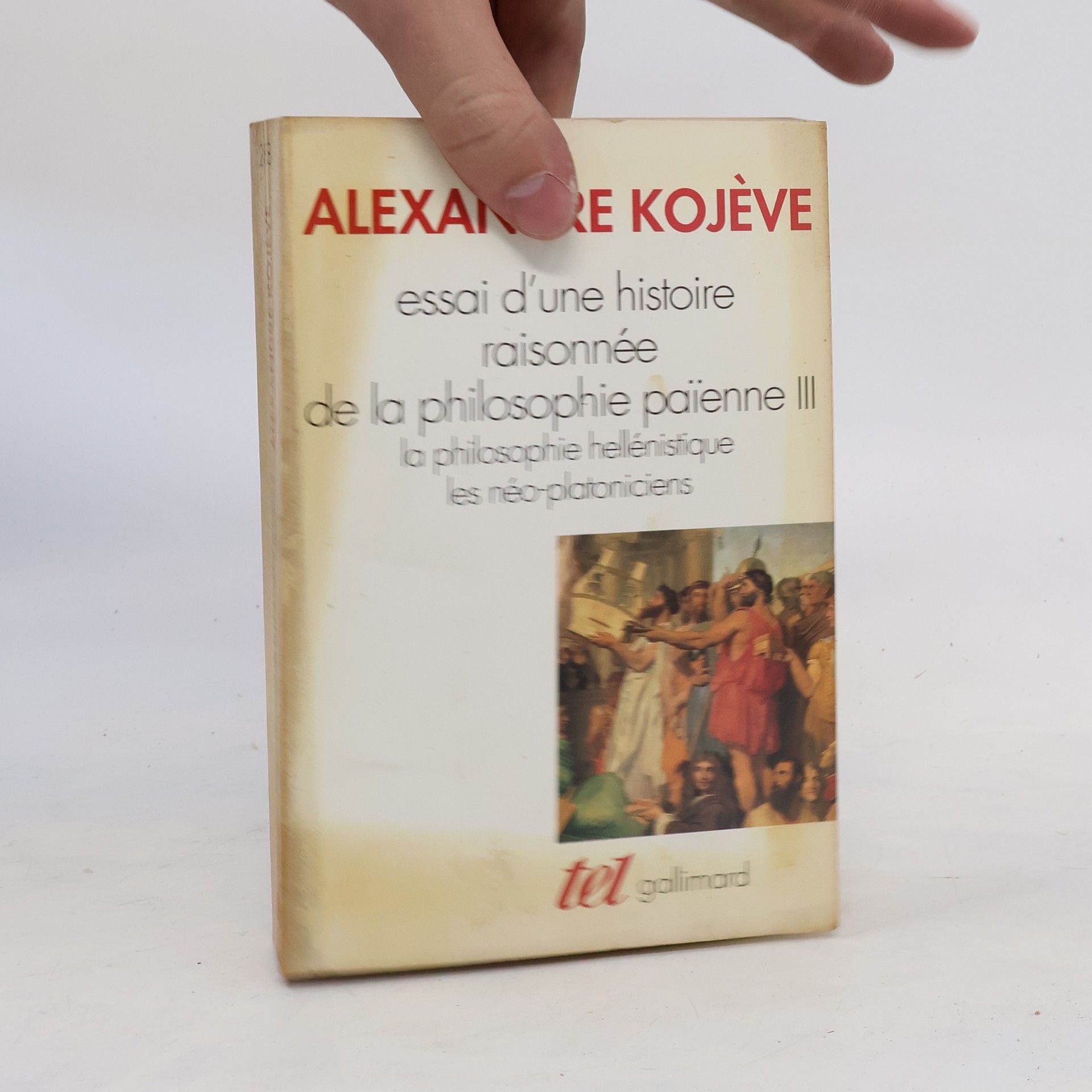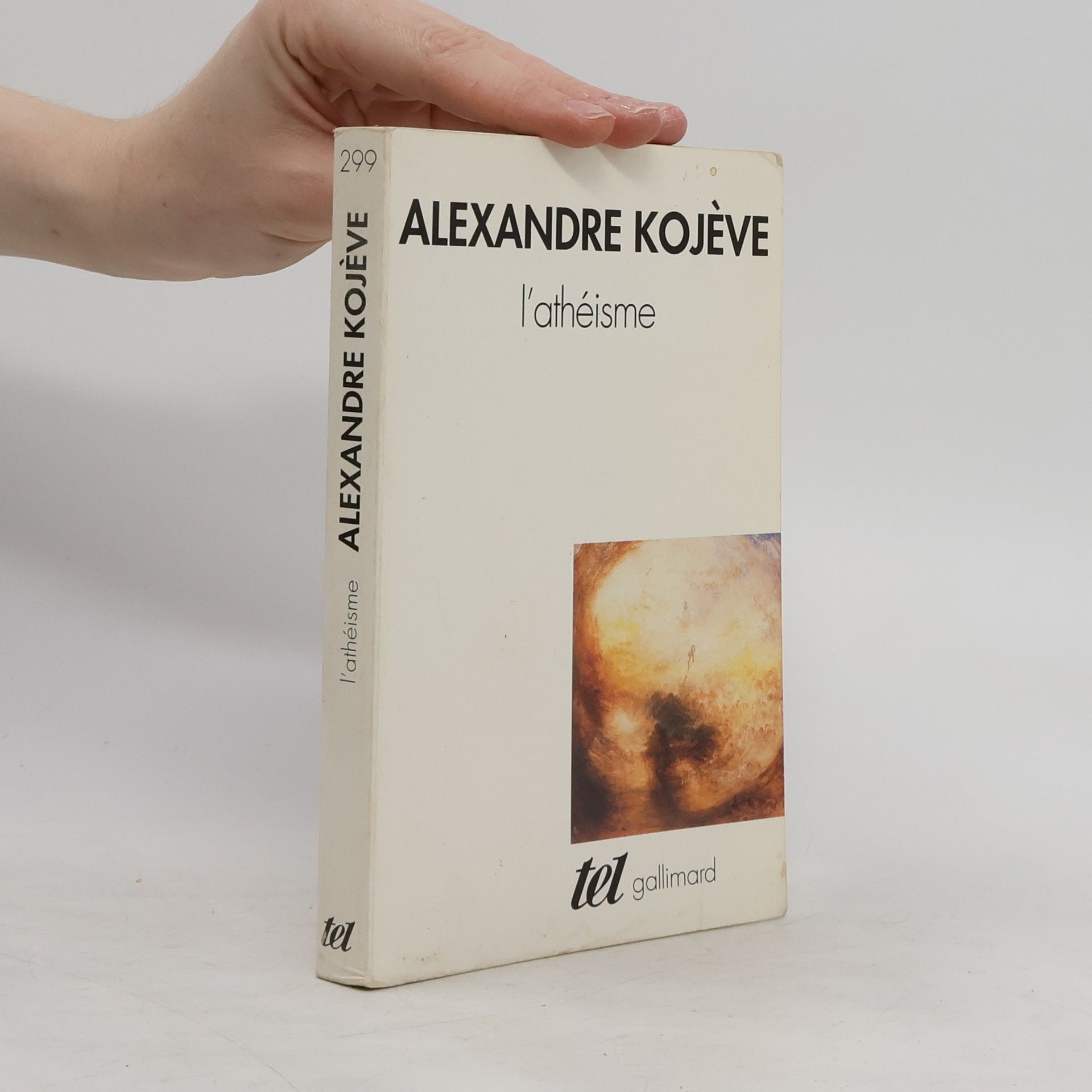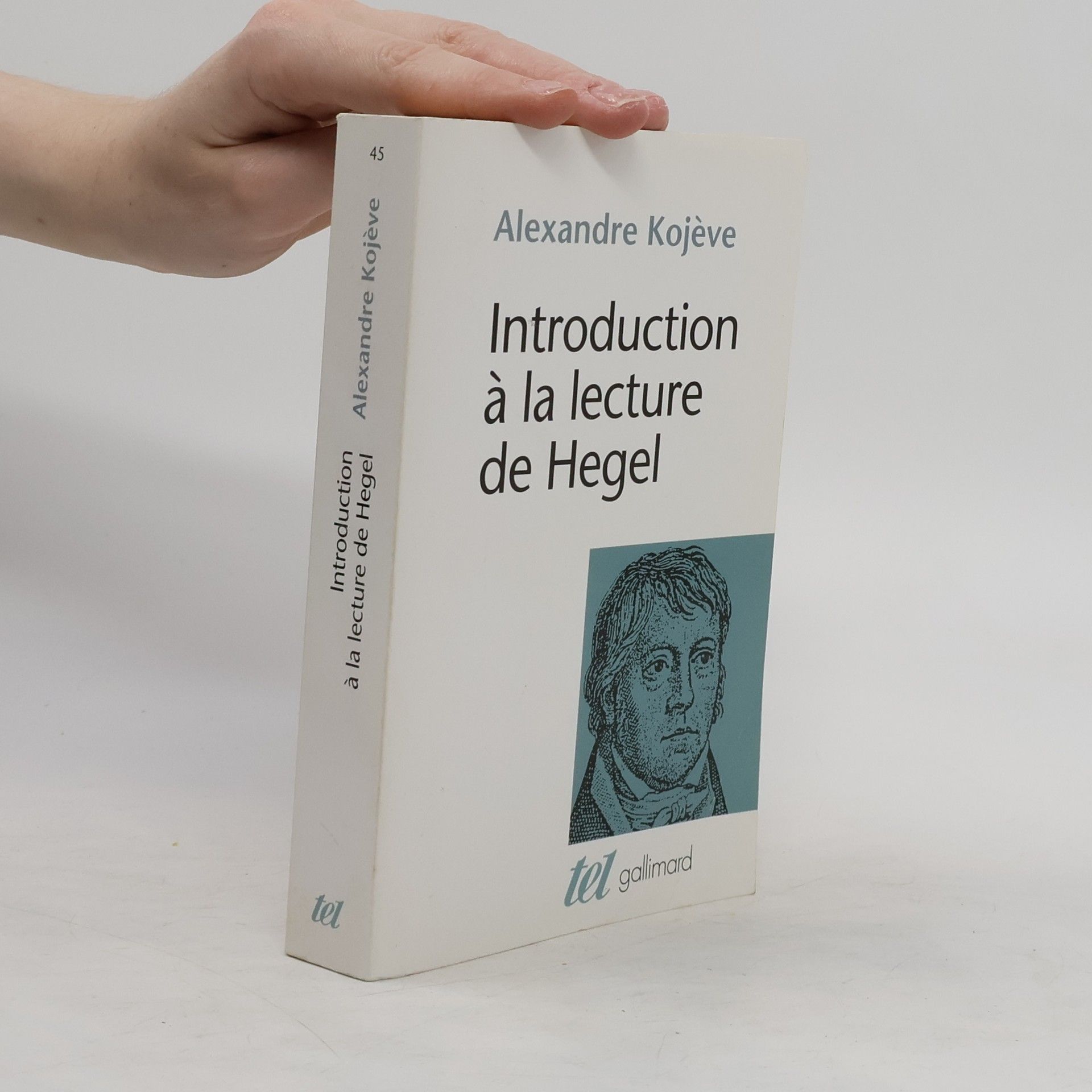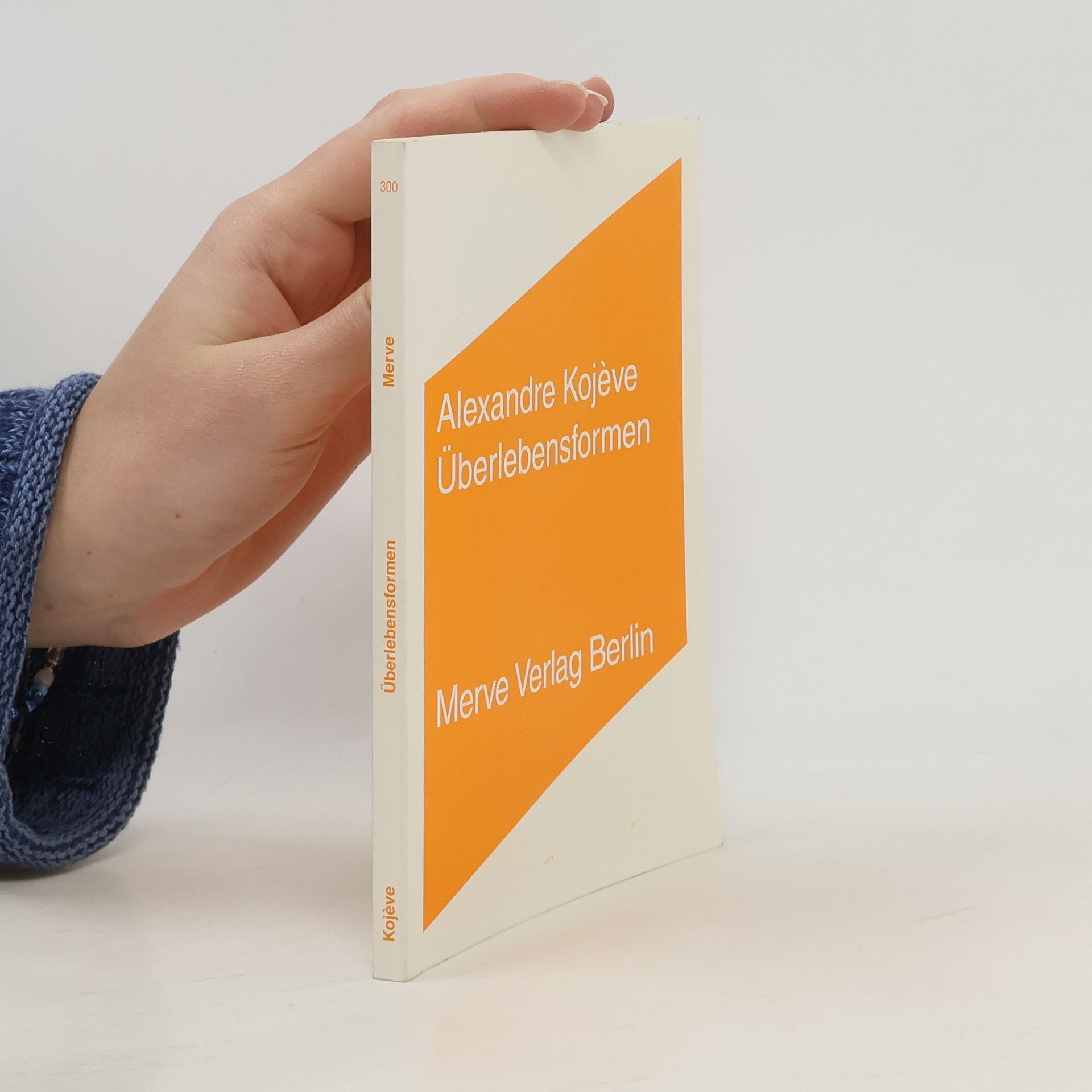Introduction à la lecture de Hegel
- 597pages
- 21 heures de lecture
Le noyau de cet ouvrage est formé par les notes prises de janvier 1933 à mai 1939 au cours que fit Alexandre Kojève à l'Ecole pratique des Hautes Etudes, sous le titre La philosophie religieuse de Hegel, et qui était en réalité une lecture commentée de la Phénoménologie de l'Esprit. Chaque année de cours est complétée par le résumé publié dans l'Annuaire de l'Ecole des Hautes Etudes. De plus, les trois premières leçons de l'année 1937-1938 et toute l'année 1938-1939 sont données dans leur texte intégral. Enfin, en guise d'introduction, on trouvera la traduction commentée de la section A du chapitre IV de la Phénoménologie de l'Esprit, parue dans Mesures (14 janvier 1939).
